
Hamas: their goals, supporters, and conflict with Israel
On October 7, a violent conflict erupted in the Middle East as Hamas militants attacked Israel. This event marked the first declaration of war by Israel in over 50 years. More than 1,000 Israelis and nearly 800 Gaza residents have lost their lives, with ongoing attacks from both sides
In this article, we will explore what Hamas is, its origins, why it opposes Israel, and who supports this Islamist group.
What this article covers:
- What is Hamas, and where did it come from?
- Hamas' goals and conflict with Israel
- Supporters: Who are the tens of thousands of Palestinians who support Hamas, and who backs the organization?
- The role of Iran and Russia in Hamas' conflict with Israel
- Recognition of Hamas as a terrorist organization
"Holy War" of Palestinian militants: What is Hamas?
Hamas is a multifaceted organization with roles as a Palestinian Islamist movement, a political party, and, concurrently, a terrorist group. Its inception can be traced back to December 1987, shortly after the onset of the First Palestinian Intifada. This uprising marked Palestinian Arabs' resistance against Israel's occupation of territories it had acquired during the Six-Day War in 1967. This initial phase of the conflict is often referred to as the "war of stones" because Palestinians primarily employed stones and homemade weapons in their confrontations with Israelis. The conflict eventually culminated in the signing of the Oslo Accords in 1993, agreements between Israel and the Palestine Liberation Organization, though Hamas did not recognize these accords and continued its attacks on Israeli territory.
The movement was founded by radical members of the Muslim Brotherhood, a prominent Islamic organization in Egypt. It was led by the charismatic Islamic figure Sheikh Ahmed Ismail Yassin, who had been paralyzed from an early age and relied on a wheelchair for mobility. He was killed during an Israeli military operation in the Gaza Strip in 2004.
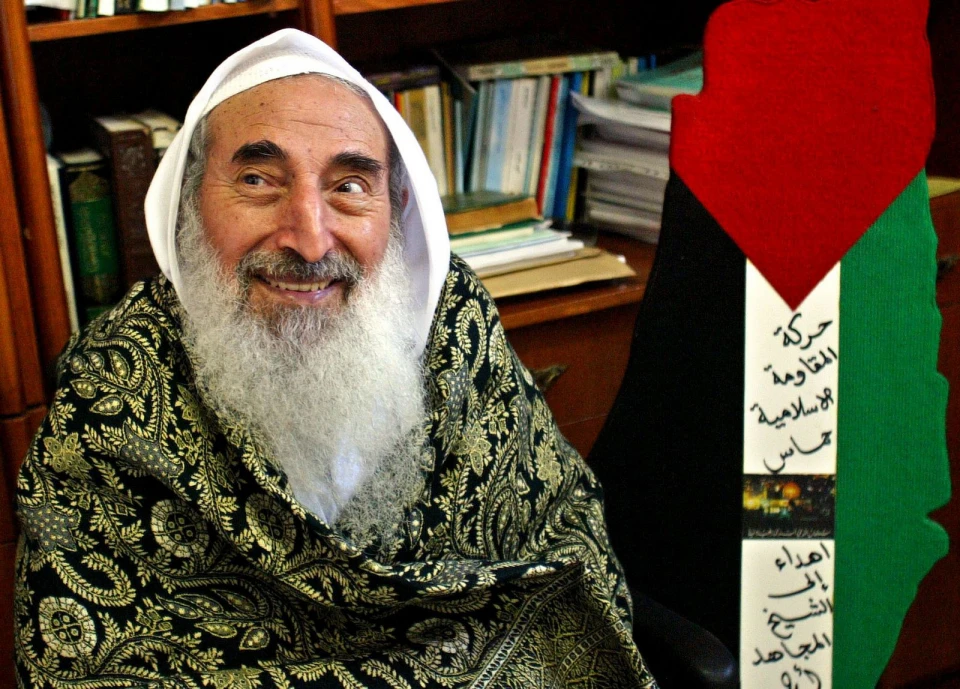
Sheikh Ahmed Ismail Yassin
Photo: from open sources on the Internet
Hamas, as it exists today, evolved from two other groups initially operating in the Gaza Strip: the West Bank and Gaza Strip Wing of the Muslim Brotherhood, and the Palestinian Islamic Jihad. Yasser Arafat, the leader of the Palestinian National Movement, alleged that Hamas had been created with the assistance of Israeli intelligence services to counteract the Palestinian Liberation Organization and undermine the Palestinian resistance movement.
In the early stages, Israeli authorities did not oppose Hamas and even provided support, perceiving both groups as a counterbalance to the influence of the Palestine Liberation Organization. However, in May 1989, the Israeli police detained 250 Hamas members, including founder Yassin, on charges of murder and organizing an uprising. Although Yassin was sentenced to life imprisonment in 1991, he was eventually released due to a failed Israeli covert operation in Jordan in 1997.
Hamas maintains its main operational base in Tehran, Iran, and since 2014, it has also been present in Doha, Qatar. Unlike the Iranian-controlled Palestinian Islamic Jihad, Hamas preserves a significant degree of independence in determining its strategic and tactical approaches to the struggle. The organization consists of two wings: a political wing responsible for propaganda and recruitment through mosques and social institutions, and a military wing known as the Izz ad-Din al-Qassam Brigades, which executes combat operations. In the 1990s, Hamas established branches in various countries, including the United States, Europe, Saudi Arabia, Jordan, Syria, Lebanon, and Iran.
Hamas receives financial support from countries such as Iran, Jordan, Sudan, and Persian Gulf states. The group's annual budget amounts to approximately $30 million, with about one-third of this funding coming from supporters residing in the USA and Europe.
In May 2021, during an armed escalation in the Israeli-Palestinian conflict, the Israeli military arrested Alaa Hamidan, a Hamas leader who was part of the "Al-Quds" parliamentary list representing Hamas interests within the Palestinian Authority. The political party is led by Ismail Haniyeh, a Palestinian politician and former prime minister of the Palestinian state.
Hamas vs. Fatah: Understanding their goals and the Israel conflict
Following the passing of Yasser Arafat, the head of the Palestine Liberation Organization (PLO), in 2004, Hamas started playing a more active role in Palestinian politics. In 2006, they won the majority of seats in the Palestinian Legislative Council elections, challenging Fatah, which had been a leading PLO party.
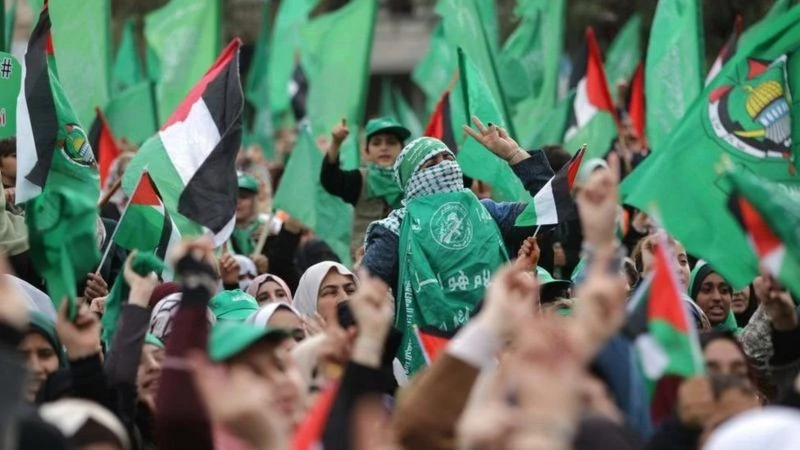
Photo: ANADOLU AGENCY
It's worth noting that in the same month, February 2006, Russian President Vladimir Putin invited a delegation from Hamas to Moscow for talks. This move surprised many countries involved in the Israeli-Palestinian conflict and drew criticism from Israel.
In 2007, an armed conflict between Hamas and Fatah erupted in the Gaza Strip, resulting in Hamas taking control. Fatah retained power in the West Bank, where Mahmoud Abbas established a new government. This division led to a fractured Palestine, with the two factions in conflict.
While in control of Gaza, Hamas continued to target Israel and launch rocket attacks. In response, the Israeli military conducted operations to dismantle Hamas's military infrastructure, including "Cast Lead" in 2009, "Pillar of Defense" in 2012, and "Protective Edge" in 2014.
Since then, sporadic violence has erupted between Israel and Hamas, such as the escalation in May 2021, though they have managed to reach truces mediated by Egypt, Qatar, and the United Nations. Despite an Israeli blockade, Hamas maintained power in Gaza and increased its rocket arsenal.
Hamas aims for the liberation of not only Gaza and the West Bank, which Israel occupied in the 1967 Six-Day War, but also other areas considered Palestinian. Their overarching goal is the destruction of Israel and the establishment of an Islamic theocratic Palestinian state, seen as a center of the Arab and Muslim world by their spiritual leader, Sheikh Yassin.
Hamas promotes resistance to Jewish settlers in Palestine and opposes secular development supported by some left-wing movements and Arab cooperation with Israel. They conduct militant operations to undermine Israeli morale and discredit Israeli authorities. Recruits are often drawn from universities, schools, mosques, and charitable institutions. Hamas also forms units of "shahids" (martyrs), who believe that dying for Islam is a direct path to paradise.
Tens of thousands of Palestinians support Hamas terrorists. Who else?
The Gaza Strip is one of the most crowded places globally, with about 2.3 million people living in a small area. Most of them are refugees or their descendants from the 1947-49 Arab-Israeli war. The region faces severe economic challenges, with shortages of water, electricity, and medicine. Nearly 80% of the population lives in poverty and depends on help from international organizations. Despite Israel's withdrawal in 2005, the UN still considers the Gaza Strip as an occupied territory.
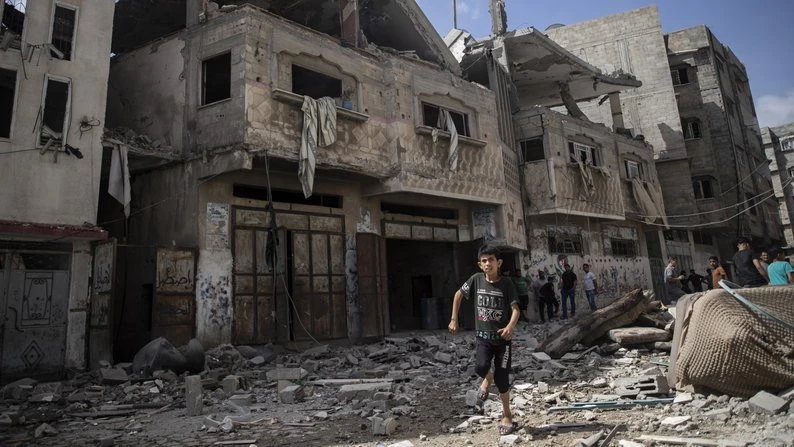
Photo: AP
When Hamas attacks Israel, they often use their own people as shields. They place rocket launchers near homes, on hospital and school rooftops, and use apartment buildings for their headquarters.
Hamas primarily gets weapons through tunnels from Egypt, even though Egypt tries to block these channels. Qatar is one of the main financial supporters of Hamas. Qatar has provided over $1.5 billion to Hamas accounts. Israel hopes that Qatar and other Arab countries will follow the United Arab Emirates example and normalize relations through agreements like the Abraham Accords signed in 2020.
Turkey is another important ally of Hamas. Turkish President Recep Tayyip Erdogan pledged support to the Palestinian movement before the attack on Israel on October 7. Turkey has been actively involved in negotiations about the Palestinian-Israeli conflict and is willing to assist once a ceasefire is agreed upon.
Additionally, Hamas receives support from various non-governmental initiatives worldwide. The organization has tens of thousands of supporters among Palestinians.
Iran and Russia's role in recent Hamas-Israel war
The Wall Street Journal reported that Iran played a role in planning the recent Hamas attack on Israel. Iran has been assisting Hamas for several weeks in their preparations for this attack. The final approval for the operation was granted in Beirut, just before the invasion from the Gaza Strip.
White House spokesperson John Kirby stated that Iran is complicit in the attack by Palestinian militants on Israel, as it has a long history of supporting Hamas and other regional terrorist groups through training and resources. However, the U.S. lacks concrete evidence of Iran's direct involvement in the attacks on Israel.
Meanwhile, the Iranian delegation at the United Nations denied any involvement in planning or executing the Hamas attack on Israel. They emphasized their strong support for Palestine but asserted that decisions regarding Palestinian actions are made by Palestine alone.
Iran's Supreme Leader, Ayatollah Ali Khamenei, also denied any involvement while welcoming what he termed "Israel's military and intelligence defeat." He expressed approval for those who planned the attack on Israel, citing the actions of the Zionist regime as the root cause of the conflict.
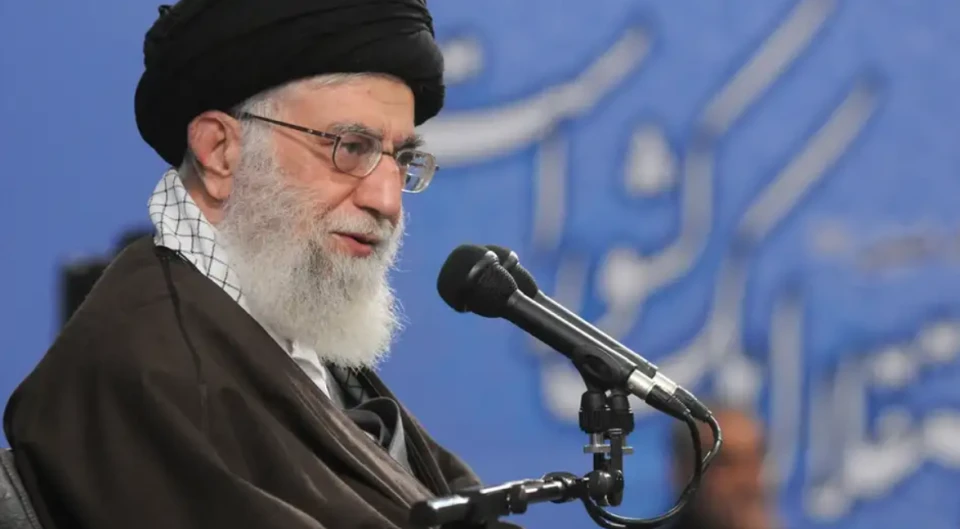
Photo: Iranian Supreme Leader Ayatollah Ali Khamenei
Regarding events in Israel, the Russian Federation criticized the United Nations and its Security Council for failing to implement relevant resolutions and accused the West of obstructing the work of the Middle East "quartet," which includes Russia, the USA, the EU, and the UN. Russia's Deputy Chairman of the Security Council, Dmitry Medvedev, hinted at potential Kremlin involvement in the Hamas attack while mentioning the situation in Ukraine: “Instead of actively working at Palestinian-Israeli settlement, these morons have interfered with us, and are providing the neo-Nazis with full-scale aid, pitting the two closely related peoples against each other. What can stop America’s manic obsession to incite conflicts all over the planet?”
President Vladimir Putin commented on the conflict, attributing it to the failure of U.S. policy in the Middle East. He stated that Washington did not prioritize finding compromises for both sides and neglected the fundamental interests of the Palestinian people. According to Putin, Russia advocates “minimizing harm to civilian populations” and “calls on all parties in the conflict to do the same.”
Additionally, the Ukrainian Center of National Resistance reported that some fighters from the Wagner Private Military Company (PMC), who had previously operated in Belarus and later departed for African countries, were involved in training and sharing combat experience with Hamas fighters. Key aspects of this training included assault techniques and the use of small unmanned aerial vehicles for delivering explosive materials. The Wagner fighters provided expertise in using drones with release mechanisms on enemy targets, an area in which only the Russians among Hamas's allies possess experience, which they imparted to the Palestinian fighters during training sessions in African countries.
Which countries consider Hamas a terrorist organization?
Hamas is officially labeled a terrorist organization by Israel, Canada, the USA, the UK, the European Union, and Japan. It's also banned in Jordan and Egypt. Australia only sees the military part of Hamas as a terrorist group. Notably, in December 2014, the European Court of Justice removed Hamas from its list of terrorist organizations.
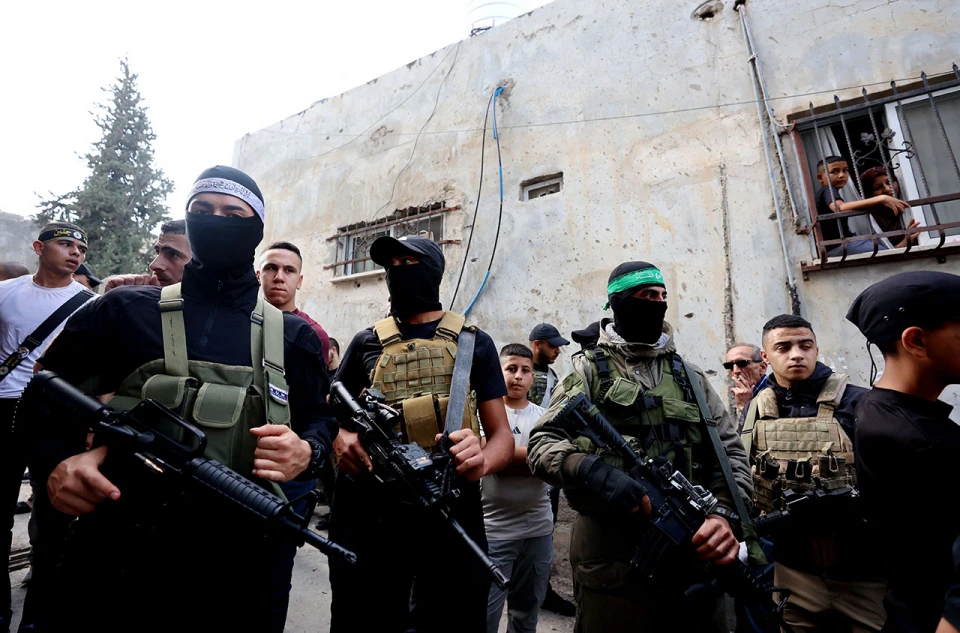
Photo: Getty Images
During the war in Israel, Ukraine's President Volodymyr Zelenskyy mentioned that Russia supports the Hamas terrorist group. However, Ukraine hasn't officially recognized Palestinian militants as terrorists yet. The President's representative, Fedir Venislavsky, hinted that the country's lawmakers might consider this, emphasizing the need to avoid additional challenges during the ongoing struggle.
Oleksandr Merezhko, who heads the Verkhovna Rada Committee on Foreign Policy and Interparliamentary Cooperation, believes that Ukraine should acknowledge Hamas as a terrorist organization. In May 2021, a resolution to that effect was registered in the Council. Merezhko stressed the importance of consulting with the Ministry of Foreign Affairs and relevant authorities to address all aspects before adopting the document.
- News












































